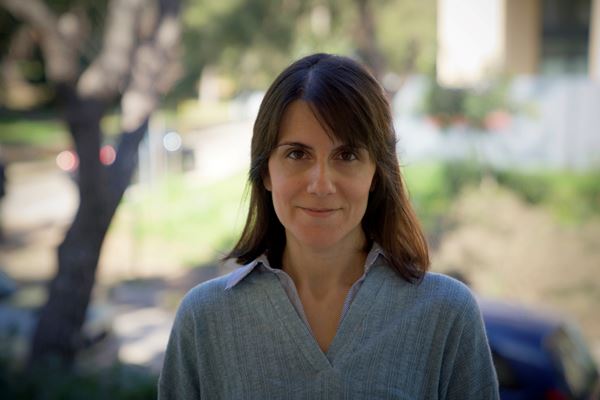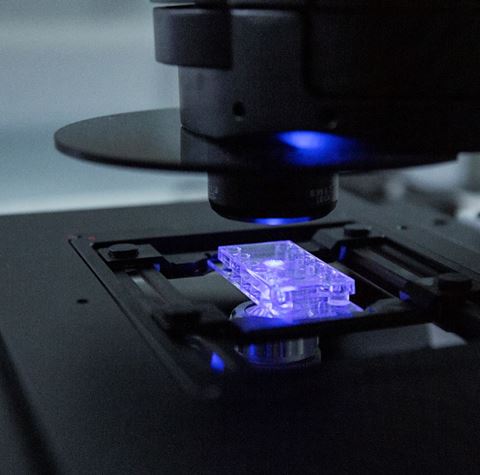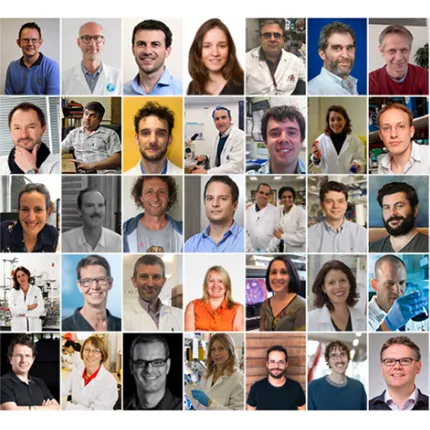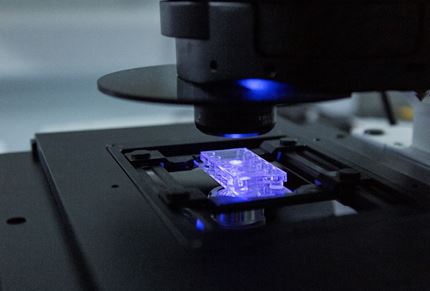Research projects
Understanding how colorectal tumours hijack healthy cells
Project aim
Dr Koliaraki and her team are studying how colorectal tumours recruit healthy cells to support them and help them grow. They hope that uncovering how cancer cells and healthy cells communicate will reveal ways to target colorectal cancer by interrupting this process.
Hope for the future
In 2020, colorectal cancer was the third most common type of cancer and the second leading cause of cancer deaths around the world. With so many people diagnosed each year, new cures for colorectal cancer have the potential to help millions live longer.
Colorectal tumours can help themselves survive and grow by recruiting healthy cells to support them, however we don’t yet understand how tumours do this. Dr Koliaraki and her team are studying how a protein called ‘NOTCH’ may be used by cancer cells to recruit healthy cells nearby. They hope that by understanding how these cells are communicating, they can reveal new ways to target colorectal cancer by disrupting this process.


Meet the scientist
Dr Vasiliki Koliaraki has dreamt of being a research scientist since she was 8 years old, when she read “Shannon’s Way” and became fascinated by the passion and determination of scientists. She is motivated every day by the possibility of discovering new knowledge and working out how to take it further. Outside of the lab, Dr Koliaraki enjoys spending time with her family, reading books, drawing, and cooking.
The science
Recent research has shown that the microenvironment of colorectal tumours, as well as many other types of tumour, plays an important part in the growth and spread of cancer. This includes the way that tumours communicate with the healthy cells that surround them, such as recruiting them to help support the tumour’s growth.
NOTCH is a protein found in healthy cells and used as part of an important communication network, relaying molecular signals from outside the cell to the inside. However, higher than normal levels of NOTCH have been found in patients with colorectal cancer and this has been linked to worse outcomes. Research has shown that a key influence on the growth of colorectal tumours could be when the communication network using NOTCH doesn’t work as it should.
Dr Koliaraki and her team previously discovered that colorectal tumours use NOTCH to recruit healthy cells, called fibroblasts, to support the tumour’s growth. The researchers now aim to uncover how colorectal tumours are able to use NOTCH to recruit fibroblasts by studying how this happens in cancer cells in the lab and mice with colorectal cancer. They hope that understanding how this happens will reveal new ways to interrupt this process and stop colorectal tumours growing.
I really believe that it is important to fund basic research. It is driven by curiosity and open-ended questions that have moved research and innovation forward for decades.Dr Vasiliki Koliaraki
Become a Curestarter and help us fund the next pioneering research project.
Our research projects wouldn't be possible without the funds we receive from people like you. Just £24 can pay for an hour of research.
Support Us




